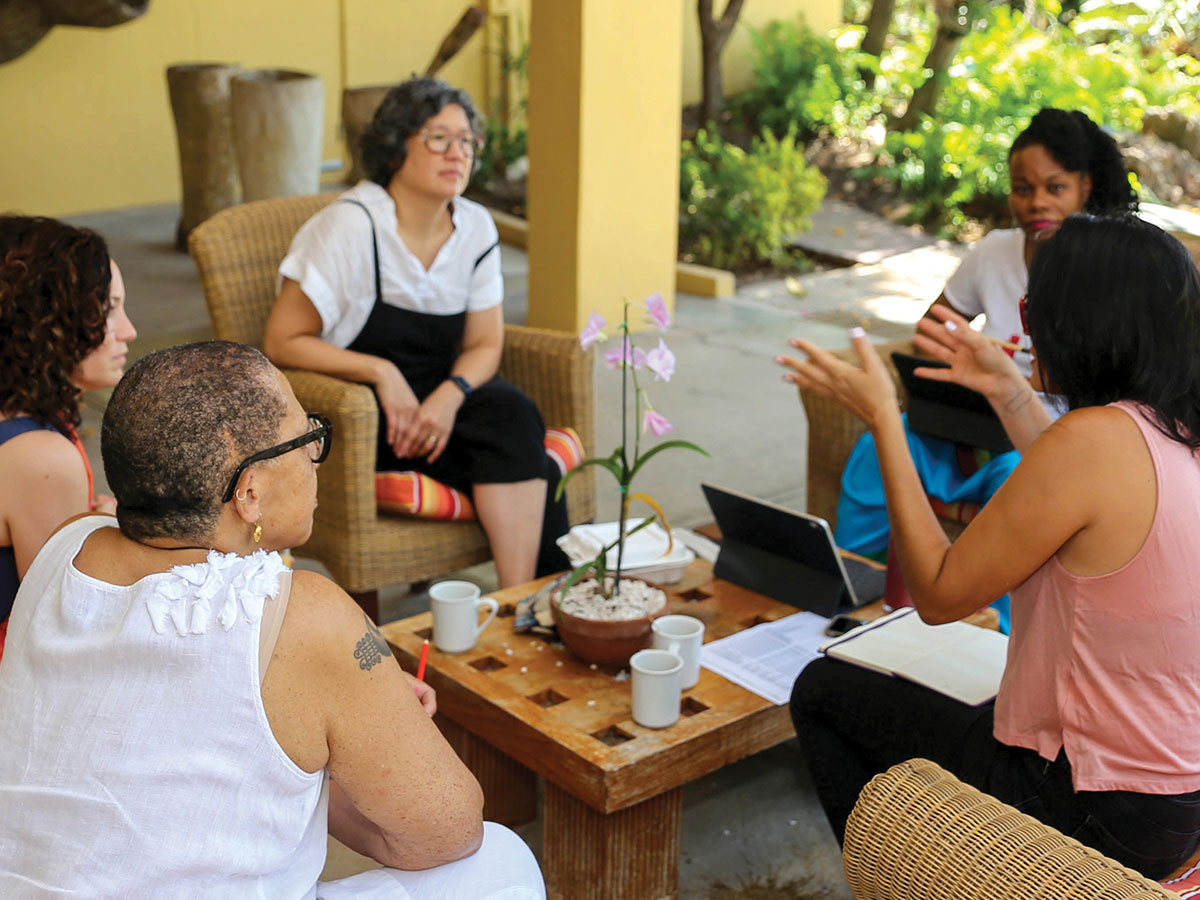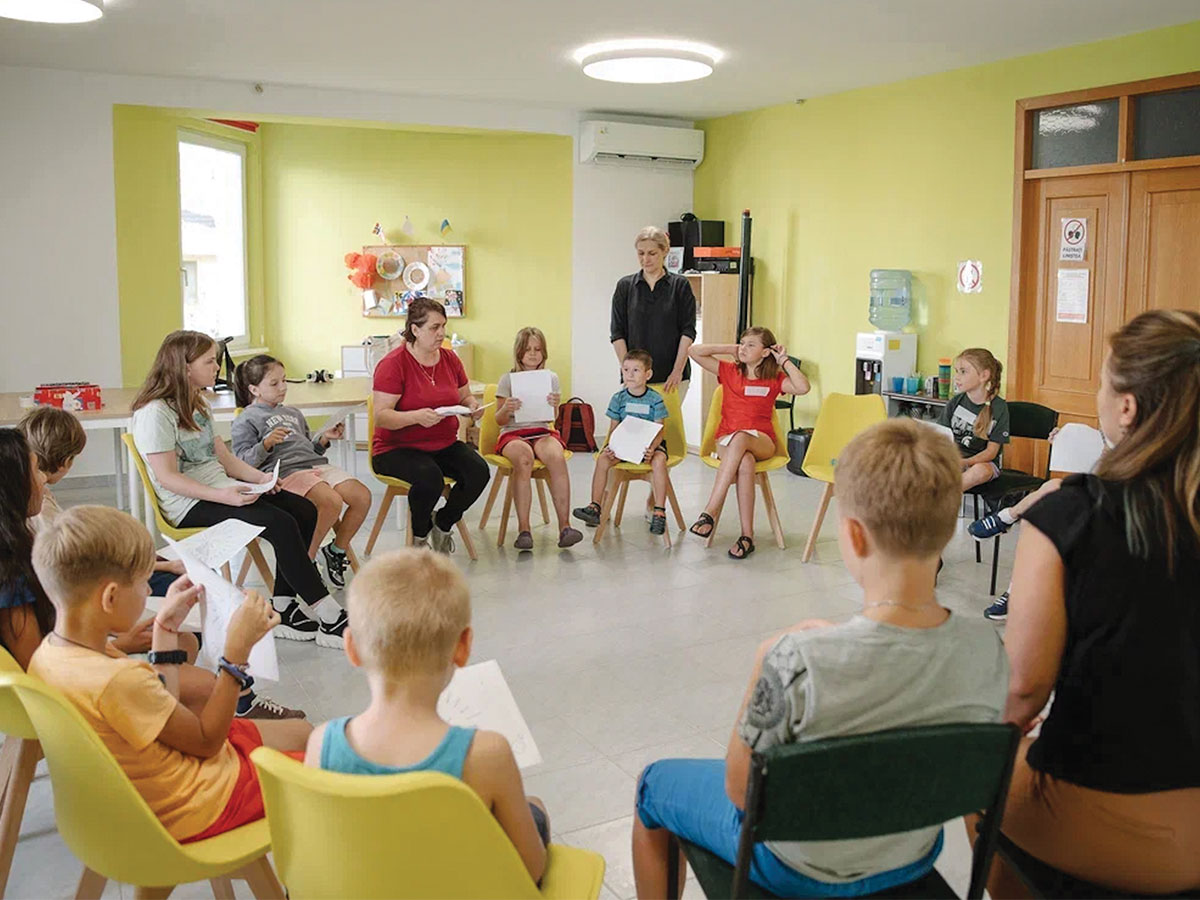When Disaster Strikes: Responsive, values-driven grantmaking strategies for emergencies

New Orleans is a coastal city. Situated where the Mississippi River Delta becomes the Gulf of Mexico in Southeast Louisiana, New Orleans is strategically positioned for commerce; however, its location also defines its most existential threat. Due to coastal subsidence, south Louisiana is facing the highest rate of relative sea level rise in the world. In other words, our land is sinking and the sea is rising simultaneously. Geologists estimate that Louisiana is losing the equivalent of a football field an hour due to this reality. In addition, south Louisiana is vulnerable to heavy rainfall and destructive storms, which are increasing in their frequency and severity due to climate change.
When a disaster strikes, it always exacerbates pre-existing socio-economic conditions. In New Orleans, areas of high flood risk coincide with areas where large concentrations of people of color and low-income residents live. Ironically, these areas of high flood risk occupied by a considerable number of low-income and people of color are also areas that have experienced significantly higher numbers of COVID-19 cases compared to other areas in the city.
As in the case of Hurricane Katrina, we anticipate a long recovery from the pandemic. The impact on our region’s economy has been profound, given our reliance on tourism and hospitality. Before COVID-19, the recovery from Katrina was unequal for individuals, with incomes of African Americans and Latinos trailing significantly behind their white counterparts. New Orleans perfectly demonstrates why equity and resiliency matter in recovering from disasters.
The Greater New Orleans Foundation (GNOF) is the community foundation for the 13-parish region of Southeast Louisiana, dedicated to driving positive impact through philanthropy, leadership, and action. It aims to create a more vibrant, sustainable, and just region. The Foundation was forever changed by Hurricane Katrina, realizing that it had a critical role to play in helping New Orleans and the region rebuild. This transition from a traditional community foundation mainly focused on donor advised funds to one that stretches and engages as a civic leader has brought tremendous growth for the Foundation. GNOF held an eight-year $23-million pooled fund to rebuild affordable housing, created a discretionary grant program, added a programmatic arm dedicated to building nonprofit capacity and leadership, created a continuance of operations plan, launched civic leadership initiatives, and developed a Foundation-wide disaster strategy that engages every department.
We understand that living in the Greater New Orleans region means it is not “if” a disaster strikes, but “when.” Since 2016, GNOF has responded to more than 16 local and regional disasters making targeted disaster recovery and resilience investments. In 2020, in addition to responding to the COVID19 pandemic, GNOF also responded to the earthquakes in Puerto Rico and successive Hurricanes Laura, Sally, Beta, and Zeta, making nearly $7M in grants.
Our experience and our values have driven changes in our practice over time to make us more responsive, nimble, and connected. The Foundation is proactive (versus reactive) in our disaster grantmaking, and our disaster strategy guides and coordinates the response of every department of the Foundation:
- Leadership and Public Affairs coordinate with regional government and local philanthropy before and during disasters.
- Communications has set protocols for activating the Disaster Fund.
- The Development team conducts donor education and fundraising before a disaster strikes, and it guides donors on making strategic investments with us during a disaster.
Our goal is to pre-position our Disaster Response and Restoration Fund so that we can make immediate grants when necessary:
- The grants team works to pre-register Community Organizations Active in Disaster (COADs) and Volunteer Organizations in Disaster (VOADs) for electronic grantmaking.
- Vetted organizations are invited to apply, completing a streamlined application on Foundant grants portal. The entire process is by invitation only, informed by our work with partners in government, philanthropy, and the nonprofit sector.
- All grants are approved internally and ratified by our board.
- Our finance team collects ACH information and manages the process to ensure that we can deploy resources quickly.

Through our Nonprofit Leadership and Effectiveness program, we help nonprofits get ready for disasters by developing and regularly updating Continuance of Operations Plans (COOP). In 2019, we coordinated with the Louisiana Association of Nonprofit Organizations to update and expand its “Get Ready Guide” for nonprofits and conducted a disaster summit for nonprofits with state and regional officials to provide training. In addition, we gathered feedback from grantees on how to strengthen our disaster grantmaking as well as convened other community foundations and place-based funders on best practices. As a result, we invest in both short-term relief and long-term rebuilding efforts, intentionally reserving 40 percent of all donations for long-term rebuilding investments. Our grantmaking strategy is grounded in and informed by our values.
Because equity, resilience, sustainability, and civic participation drive our disaster grantmaking, we make short-term recovery and long-term rebuilding investments that focus on:
- Vulnerable Populations and Safety Net Services
- Legal Services
- Mental Health
- Affordable Housing
- Policy and Advocacy
- Nonprofit Leaders of Color
- Businesses Owned by People of Color
- On-going Capacity and Support for Nonprofits
- Workforce
- Childcare and Education
Clarity of focus, an articulated disaster grants strategy, a game plan for the entire Foundation, and prepositioned dollars available in our Disaster Response and Restoration Fund made GNOF ready to respond quickly when COVID19 struck. We were able to make $40,000 in grants within 48 hours of our region going into lockdown and immediately launch fundraising efforts among our donors, board, local philanthropy, and national partners. Our immediate focus was to support the following vulnerable populations who were most impacted by the pandemic: senior citizens, wage workers, opportunity youth, homeless, returning citizens, and undocumented people. In addition we prioritized safety and slowing the spread, addressing health disparities and healthcare access, legal services, and food security.
To support nonprofits, we conducted regular webinars and town hall meetings on topics including human resources, crisis communications, short-term financial planning, the Paycheck Protection Program, and health disparities. More than 2,000 leaders attended nearly 40 webinars over the course of ten months. Each webinar was recorded and posted on our website along with resources and tools for leaders.
Our staff also co-chaired the City of New Orleans’ Food Security Task Force, and participated on the Mayor’s reopening task force and workforce taskforce. In addition, we worked very closely with our local philanthropic colleagues to inform grantmaking. GNOF supported 112 nonprofits with $6.6 million in grants to address COVID19. We reserved $1.7 million for long-term investment. The grants committee of our board recently approved a strategy to invest $700,000 in grants to address on-going needs with a longer-term focus in health, food security, and housing. The remaining $1 million will support strategic initiatives in the workforce as our region grapples with reducing its dependency on tourism and hospitality and helping dislocated workers find new career pathways.
PEAK members are invited to watch the on-demand webinar presented by Carmen in fall 2020. Login to view the recording here. Whether or not your organization funds disaster relief, you will benefit from these practical lessons in grantmaking practices that support the nonprofit sector’s sustainability during and after a disaster.
Photo [top]: GNOF supported the purchasing of computers, tablets, and hotspots to ensure that Louisiana Green Corps participants would be able to complete green infrastructure training programs and be connected to employment.
Photo [below]: Grow Dat Youth Farm youth program focuses on Opportunity Youth and received support from GNOF to keep paying its program participants a monthly stipend when farm operations were temporarily suspended in the beginning of the pandemic. The youth have returned to the farm and have been part of local efforts to ensure that seniors and immune compromised residents receive fresh and healthy foods.



